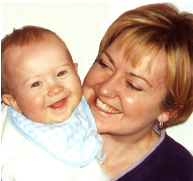Role Reversal
M.G. Morris and R.W. Gould
To the present parent, the child appears as the original parent...
Role reversal is defined as a reversal of the dependency role, in which parents turn to their infants and small children for nurturing and protection. These parents seem to have perceived and experienced their own parents as unloving, cruel, and brutal. Therefore, their egos have not matured and, consequently, social and parental role development has been retarded. When natural infant-child dependency is experienced by these parents as a series of assaultive acts upon themselves, they retaliate with actual assaultive behaviour. This retaliation may be phrased passively, in neglect, or actively, by battering...
The concept of role reversal involves reversal of many roles. To the present parent, the child appears as the original parent with all of the parent's malign, primitive meanings and blighted hopes. Because the abusive parent's character development has been fixed at the level of ego incompletion, role reversal is applicable to either one of their parents, regardless of the sex of the present parent or of the parent of orientation -- the reason frequently being that personal and sexual identity are not yet achieved. The number of children procreated has no bearing on this, for the no-self can only create other no-selves.
The concept of role reversal is necessary in understanding the reasons underlying parents' primitive, brutal behaviour. From birth, babies are perceived by these parents as having adult powers for deliberately displeasing or judging, and they appear to be as unsatisfying and insatiable to the current parent as were their original parents. The natural dependency of babies reinforces the projected image of the original parents who demanded, who could not be satisfied, and who did not satisfy the current parent.
At this point, the brutality of their parents is seen by these parents as a "good" trait of their parents, although they had hated it; it is now considered as their own natural prerogative in dealing with the dependency of their infants, who seem, so aggressive and assaultive in their role-reversal positions. Once primary distortions begin to interact, parents act out depressive, anxious feelings from other life situations against the child -- an easy target...
Edited excerpt from "Role Reversal: A Concept in Dealing with the Neglected/Battered Child Syndrome", presented by M.G. Morris and R.W. Gould to the American Orthopsychiatric Association.
